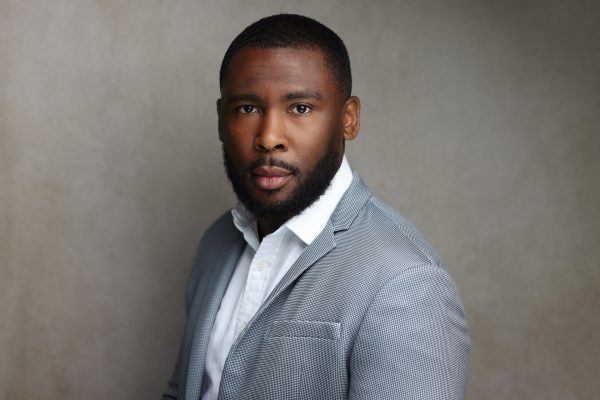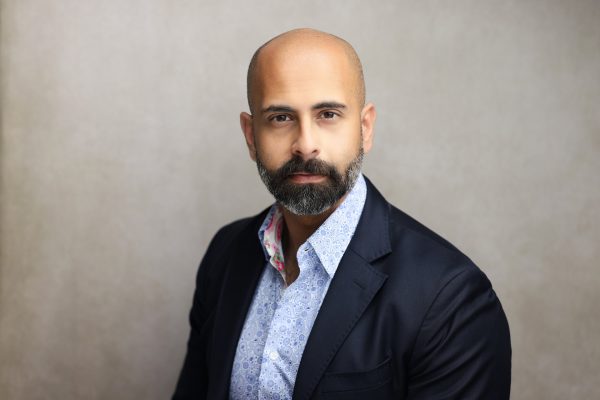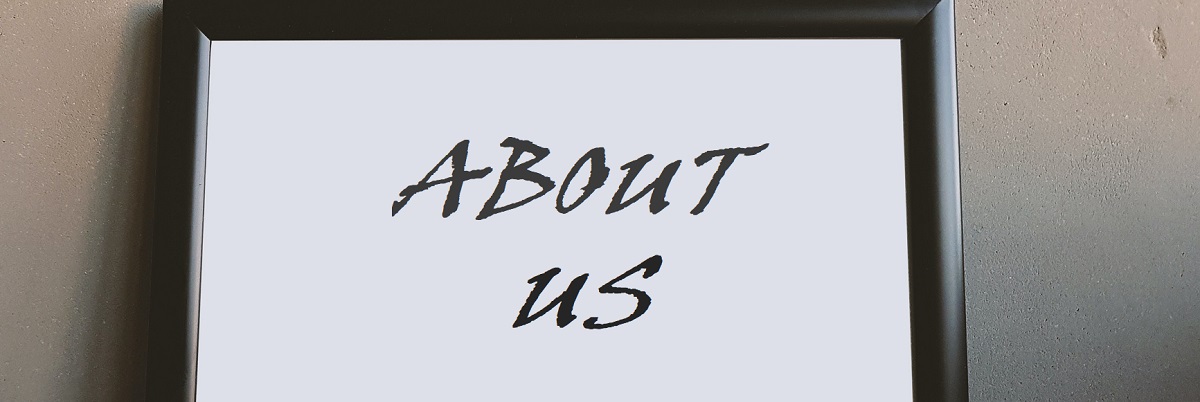We are Zaheer Anwari and Kola Gbadamasi, the co-founders of Sublime Trading and the Gryphon Fund. We have known each other since 2007. We’ve been asked a number of times if we could talk about our stories, and how we got into investing. And so, this is what today’s article is about.
We came together and created Sublime Trading in 2018. This is our education platform. We want to demystify the topic around money, and spread the simplicity of good financial literacy, making it fun and more accessible for the everyday person.
And then, we’ve also created the Gryphon Fund where we invest on behalf of our members.
It is for sophisticated investors who don’t have the time to deal with the details but still want to take advantage of our strategies, because they can see the exceptional results that we’ve achieved over the last 10 years.
Before 2007
We grew up in the opposite sides of London, Kola is from the South and Zaheer is from North London. Neither of us thought we would get into the financial industry when we were younger. We didn’t have a Finance degree, we didn’t know anyone who works at the financial industry before.
In other words, we are self-made and self-taught investors. Before we founded Sublime Trading, we had our ups-and-downs. We both made our mistakes and learnt from them.
We both tried many different courses and met many different mentors – we were mentees but now evolved into mentors. Here are our stories.

KOLA GBADAMASI
I grew up in South London. I went to school there and lived a pretty much regular life. Childhood was fun. I had a lot of friends around me and we used to hang out a lot on the weekends.
We used to play football at the park – with bottle tops and bottles, because we didn’t have much back then, so we had to improvise. But going into college and university, I played as a centre-back at the teams. I got really good at it!
I chose media production, drama, theatre studies, and English language and literature for my A Levels. This is because, initially, I wanted to get into the entertainment industry.
I wanted to become a film director and in film production and work behind the cameras. So, this was a really good combination. And these are subjects that I enjoy studying. I left my secondary school and did my A-levels at a sixth-form college, because I needed to venture out and just be in a different location.
I went on to study Media Production at the University of Luton (it’s now called the University of Bedfordshire), however, looking back and knowing what I know now, I’m not sure that university really helps at all.
I really enjoyed my time there but, I know a few people who didn’t actually go to university, who went straight into a film production company and are doing really well right now. It’s best if you actually go out there and get experience for certain careers.
Now, I’m not saying don’t go to university, I’m just saying that you have to think about if it’s going to help you go in the direction you need to go. Being in university doesn’t always give you the experience you need, it depends on which career path you want to pursue.
When I was in college, between the age of 16 and 18, I was a mentor at a small centre, which helped young boys who were excluded from schools. I was then involved in a project which allowed us to take them into the Army, which then turned into part of a TV show called Inside Out on BBC Two.
We stayed at the barracks for two weeks, lived and trained like soldiers. It was tough but an amazing experience nonetheless. I kept in contact with the producer – so I actually had a potential job offer in the BBC I graduated from university. But I refused the job offer.
By that time, my vision had changed, and I decided to not pursue a career in the entertainment industry anymore.
What made me change my mind and took me towards such a different direction was being introduced to a book called Rich Dad, Poor Dad. It was mind-blowing.
It made me realised that I have the power to take command of my life, as opposed to living in the system, being in the rat race and getting caught up in a career which I wasn’t going to enjoy.
I’m really grateful for reading that book at such a young age, because the journey from then till now has just been amazing. We can take control of our life, and I think we all need to be taught this from a young age.
We can decide on which directions we want to go, and we can always change that direction as the years go by. As you get older, you know yourself better and become more familiar with what you want, you can make adjustments as long as you have a goal or a vision.
Reading Rich Dad, Poor Dad helped me focus on what I needed to change in my life. And it was a selection of three things: starting my own business, going into real estate, or going into investing. The thing about starting a business or going into real estate is that you have to rely on others.
But I wanted to rely on no one but myself. So, I chose investing. I decided to pursue it, and this time, I didn’t want to get distracted by anything else anymore. I wanted to work part-time, earn money, save up, while I study how to become an investor.
I know that all I need is myself, a computer, an internet connection, and the trading software – and that’s it. I need to stay focus and be disciplined, and it will allow me to make money consistently.
My first encounter with trading was actually being dragged along to an investment course by a friend of mine. I was in my early twenties and my friend invited me to a trading course he had already paid for (a few thousand pounds!).
It was a two-day course and it was an intensive weekend. We were in a room with a few hundred people, and we were shown all these charts and given all the study materials. And because I had literally no idea what trading was about, I learned nothing. It was just too much to take in when you had no foundation. I went away with the materials they’d given us, and none of them made any sense.
But one day, I looked for them randomly and suddenly they all started to sink in. I thought to myself, “You know what? This is something I can really do. I understand it and it makes a lot of sense. I actually want to pursue it.”
So, I continued learning and researching. I went to different websites, but they were all day trading strategies (short-term strategies), which I soon found out that they are really not worth my time.
Day trading strategies were, of course, extremely appealing, especially when we come from a background of working nine-to-five. Who doesn’t want to make a lot of money quickly? But when I tried day trading, swing trading and other short-term strategies, none of them worked.
And so, the first course didn’t work, the strategies were very hard to implement. I found another mentor who taught a slightly better strategy, but again, it was very complicated. Some people might have been successful at it, but I wasn’t.
Later on, I was introduced to a mentor who believes in a long-term strategy.
I went on the website and watched how they analysed the markets and applied their investments. It was not about days or weeks, but more from a few months to potentially over a year. I learnt about trend following, compounding, and the importance of long-term growth.
And what appealed to me about this strategy the most was that it was a lot simpler. I understand it better, I found it easier to implement, I spend less time in front of my computer screens, and I know it is safer way to invest. It made a lot of sense. It was a no brainer.
Books
The book I cannot recommend more is, of course, Rich Dad, Poor Dad by Robert Kiyosaki. It’s fair to say that this book has changed my life.
Another book that I absolutely love is Trading in the Zone by Mark Douglas. It taught me how to think in terms of probabilities when investing. So, if I have a strategy which gives me a higher probability of the market, all I need to do is follow that strategy as it’s laid out. That’s all I need to do.
Investing can be very simple – so simple that our mind doesn’t want to believe it to be true. After all, the human brain craves complexity. We all come from a background where we studied long hours at university in order to go into a job. That’s how our society works, and we assume the same thing applies to investing.
However, the opposite is true. It requires much less work to become a trend follower or a technical investor. In fact, the more studying you do, the more conflicting all the information seems to get. I believe in less work but more focus, more discipline and patience, and it will get you better results over the time.

ZAHEER ANWARI
I grew up in Northwest London with my parents and a younger sister. None of my family members work in the financial industry. My mom was a stay-at-home wife, and my dad worked hard to make sure that we had food on the table. But we weren’t struggling. I had a normal childhood.
I always loved playing sport. At school, I used to play for the football team, the tennis team, and the basketball team. I played cricket too and I was the captain, but cricket is probably the one that I enjoyed the least out of all of them.
I was also the captain at my school’s chess team, and I won a number of trophies in chess. I also joined the Army cadets as a teenager, but that didn’t last long. I am grateful for that experience though.
Growing up, I had no idea what I wanted to do at university. The A-levels that I picked were maths, mechanics, chemistry and physics. I picked those because, well, at my school and my surroundings at the time, academia was encouraged.
But I didn’t do well at my A Levels at all. I was distracted, I put no time or effort in. I got two B’s and a C on my second attempt and got into City University in London. At university, I had no idea (again) why I did Software Engineering. Looking back now, I would have done it all completely differently.
But one important thing I have learnt during my four-year course at university was that you have to make sure you enjoy what you do in life, because it’s going to be something that takes up most of your time (i.e., your full-time job or your career).
However, I found it difficult to understand how a 16-year-old knows what they want to do in life. I know there are people out there who know the answer already at a young age, and they later become exceptional at whatever they choose to do – but that wasn’t me.
I was extremely confused. I hate to disappoint my parents but at the same time, I didn’t know what I wanted to do in life or which direction to head to.
Then, the older you get, the more you start understanding yourself, and the more you want to break free of those shackles that have been placed on you.
It was a real relief when I graduated from university – I didn’t spend much time studying or doing coursework, I just scraped through university basically – and I was ready to go out into the big, bad world and work a nine-to-five. I started applying for all these engineering jobs, but then I realised this wasn’t what I wanted either. Ever.
The moment of clarity happened when I bumped into my friend at the gym, whom I hadn’t seen for a few years. He looked tanned, and he looked amazing.
I asked him how he’s been over the years, he said, “I’ve been in Spain teaching English for the last year.” I said, “What do you mean you’ve been in Spain? I thought you studied psychology at Sussex University?” but he replied, “No, I did a TEFL course, and I can teach English in a foreign country”.
I’m not sure if you have heard of TEFL (Teaching English As A Foreign Language) course. It’s a short course which lasts four to five weeks, and once you have it under your belt, you can travel the world and teach English.
That day, I went home and found a college that offers TEFL, I enrolled for the course immediately and a few weeks later, I found a job teaching English in Taiwan.
In January 2003, I landed in Taiwan. I knew nothing around me. Everything was in Chinese writing. The only signs that I recognized were McDonald’s and Burger King, and all the famous brands that we know. It was surreal.
After Taiwan, I also spent some time in Japan and the Philippines teaching English. Those years completely moulded and shaped my life. Although I earned a little money, I was having a great time. I was getting to know myself!
So, when I came back to London, I decided to pursue a career that I was passionate about at the time: photography. I learned to make dark room prints. But that’s a skill that’s almost lost now because of the digital format.
I started working with a couple of guys. We ended up doing work for big brands like Coca-Cola, Audi, etc., because the money is in advertising photography. We also had images in Vogue, Harper’s Bazaar, and Tatler. It was a very interesting part of life.
But again, it came a point where I realize that, although the money is good, is it all worth it? Was I happy?
Because when you’re on a photo shoot, you work long hours – you could be working 17 hours a day and 3 days in a row, for example. And before long, I was absolutely knackered, unsurprisingly. It was unsustainable. So, I started to have questions again.
I was first introduced to trading by my cousin, who was a personal trainer at the time. I remember he told me, “I don’t want to be doing this for the rest of my life. There must be other ways we can make money.”
He heard about a trading course on the radio, booked us in, and took me to the free introduction seminar with him.
We are totally captivated, and at the end of the seminar, we were told that the course is normally £15,000 but if you pay today, it’s only £5,000 (of course). It was way too expensive, so my cousin and I hesitated. But a salesman stopped us just as we were leaving the room, and said, “How about if we do a two for one?”
So, we paid £2,500 pounds each, and we were enrolled. It was a weekend course based on day trading. We went, but nothing of substance was taught, and at the end of the course, they tried to sell us another £25,000 course. This is when we knew we had been had.
We didn’t learn anything on the weekend. It was just bells and whistles. My cousin and I walked away, and walking away was probably the best thing that we ever did.
Afterwards, we did try to implement the strategies taught in the seminar. We gave it a chance. But it was impossible because we simply could not sit in front of our laptop and try to make trades or close trades, while working a full-time during the week.
One thing I learnt from that experience is the element of accountability. Yes, it was a big scam, and I could just put all the blame on others but at the end of the day, I have to be accountable for my choices.
We need to understand that since we have the ability to make our own choices in life, we also have to be responsible for the consequences – especially if you’re a parent, an older sibling or a trusted friend, they are going to look up to you. You can’t continuously blame outside factors.
Books
The books that I recommend are Way of the Turtle by Curtis Faith, Reminiscences of a Stock Operator by Edwin Lefèvre, How I Made $2 Million in the Stock Market by Nicholas Darvas, and Trading in the Zone by Mark Douglas.
Now, I don’t think books provide all the answers. But what I would say is that books helped me understand what is possible. These books really helped me in terms of applying the philosophy and becoming a good trader.
Personally, I don’t find the material given on the trading courses particularly helpful. I don’t think they were well-presented. It was long and complicated. As for the mentors on the course, they weren’t ever around as much as they should have been. So, I felt like we were kind of left to fend for ourselves.
Books are great to lay a good foundation, but unless you have the ability to implement the right knowledge, you’re not going to get very far anyway.
The books aren’t answers. The answer is being around the right people, learning the right information and then having the right support to execute that information. And if you’ve got those three elements, then you could do very well.

After 2007
Fast forward to 2007, we met on a trend trading course. We quickly realised that the teaching wasn’t very good, the materials provided weren’t well laid out, and the mentors weren’t great.
But when we got to know more about each other, we were able to extract the information and create a strategy, and then get some results from that strategy.
We both have a passion for investing, mentoring others and spreading good financial literacy. We have admiration for each other’s’ contributions, analysis of the markets and work ethics. We were mentees, but we evolved into mentors in our own rights on that particular course.
Once a week, we would compare the analysis that we had prepared beforehand. And as soon as our analysis started mirroring each other, we knew we were onto a good accountability relationship here.
Again, accountability, as Zaheer mentioned earlier. Once we started discussing trades with each other and the portfolio that we were building, we both started becoming better investors.
We were able to sift through all of that information that was given to us and then create a strategy and a process that worked, and that’s ultimately what helped us become a good investor.
When you actually put yourself on the front-line teaching others, it forces you to really think about things and speed up the whole learning process.
Therefore, we will encourage each and every one of you, no matter what you’re doing, whether it’s investing or not, to just put yourself in a position where you hold yourself accountable. It really forces you to learn a lot faster than you would have if you were taking a passive role.
2018: The Founding of Sublime Trading
At the end of 2017, we asked ourselves, “Look, why are we mentoring for someone else’s community? We know strategies that work, we know what kind of tools and the support that are required, we know what people need. We would do a much better job ourselves. Let’s create our own community!”
In January 2018, Sublime Trading was created.
This is our education platform. This is our own community. We want to use it to spread awareness, to educate, and to provide support.
We want to tell people to avoid going down that day trading route – again, we are not saying that it never works, but it’s hard to implement and you can potentially lose a lot of money very quickly. We would like to help others to avoid the same mistakes we made, and guide them towards a more simpler and better direction.
Together, we have created a learning phase that you can have it down within days. These are some very simple techniques that are easy to understand. It is about learning a set of rules that you have to follow week in, week out, month in, month out, year in, year out to grow an account.
But here is the biggest challenge of all: to be consistent.
The best techniques are simple to learn, but following the rules takes focus and self-discipline. We have the right information, the right tools, and the right support. But you – and only you – have to execute it.
Then, in 2020, we have created the Gryphon Fund. This is where we invest on behalf of our members effectively. We understand that there are a lot of people out there who absolutely love what we are doing, but don’t necessarily have the time or even the inclination to go through the learning phase.
The Gryphon Fund, therefore, is for those sophisticated investors who don’t have the time to learn, but still wants to take advantage of our exceptional results and the strategies.
At Sublime Trading, we absolutely believe in a long-term strategy. And by applying that consistently year in, year out, we’ve achieved phenomenal results. If you look around our website, you’ll be able to see some of the results that we’ve achieved over the years.

If you want to keep up to date with our stocks at Sublime Trading, then don’t forget to sign up to our newsletter. And also, take a look at our scorecard, go through the questions and see whether you are on track to a wealthy retirement. On completion, you will also get access to our FREE Launchpad Starter Kit to help you reaching your financial goals.

